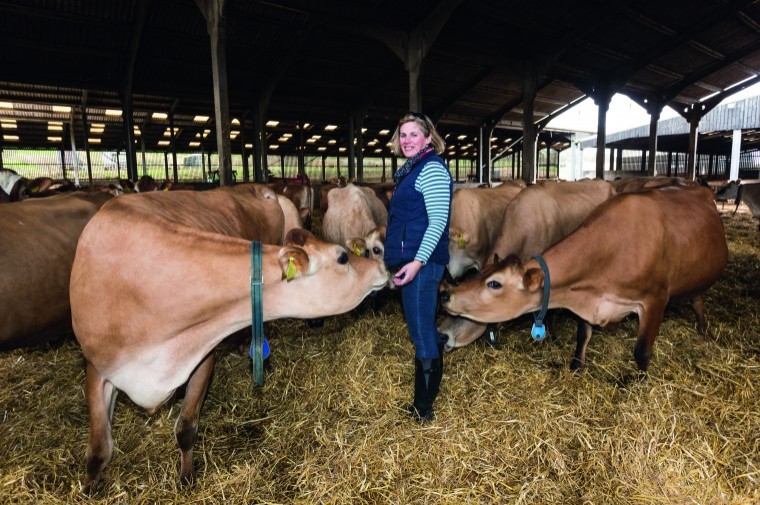I would like to start by paying a short tribute to HRH The Duke of Edinburgh. His greatest legacy has to be The Duke of Edinburgh’s award scheme; having completed my Gold award in my younger days, the feeling of achievement will never leave me. It was hard work but so rewarding, and it has served me well on many occasions in my later life.
The award is comprised of four separate parts – volunteering, physical, skills and expedition. Millions of awards have been achieved in the UK since the Duke started the award scheme in 1956. Its aim was to encourage young people to build skills, confidence and resilience. I believe at every stage in the award it achieves this. The Duke dedicated a lifetime of service to the Queen and the country. He really was one of a kind.
If all goes well and we have some good silage-making weather, we should be silaging by the time you read this. Fingers and toes are all crossed for a good yield; we certainly need one. As I write this the weather is still cold and we have had four consecutive nights with a hard frost laying on the ground.
Lambing is finally over, and the lambs are prancing around with such spirit in their step. Summer is around the corner and the lighter evenings are fantastic. The maize ground is prepped and drilling will hopefully have commenced.
Having been promoted to “post lady” for the past few weeks, I have been analysing the amount of post that comes through the letterbox. It would appear from the amount of paperwork appearing on a daily basis that the only people making any money must be the Post Office.
Apart from the usual double-glazing requests, pamphlets are delivered daily by our milk company requesting that we abide by the guidance. “Are you compliant? Is your farm tidy from an outsider’s perspective? How is your scrap pile stacked? If not, you need to be compliant ASAP. If you don’t comply you will be penalised.” I was under the opinion that we lived on quite a tidy farm, but apparently we need to ask an outsider to come and complete a survey to assess whether we fit into the “tidy category”. This will all be part of the new farm assurance. You’ve all been warned.
While driving around in a vain attempt to locate some straw for sale, I was listening to the radio, where they were having a debate regarding food and trade exports (other industries have also been affected) to the EU since Brexit. Salmon and beef exports are down by 90%, while the paperwork that used to take an hour is now taking days, with extra staff having to be bought in. The fees have increased from approximately £1,500 per shipment to over £4,000. You can’t send mixed loads of meat and fish, so this means additional expense.
European imports don’t have these extra costs as the UK government haven’t put in place the required checks and won’t be able to put them in place before 2022 at the earliest. This is not a fair playing field. We are expected to adhere to all the rules and regulations, but imports can still come in via “the backdoor“, or should I say “front door”? On a positive note, the price of beef and lamb in this country seem to have rocketed. Is the message “buy local” finally getting through?
With the spreading windows opened, farmers across the country are starting to think about emptying slurry stores and how best to supply nutrients to their soils and crops. I thought I would take this opportunity to prompt you about the rules for water. This is a relatively new set of rules and regulations that all farmers must follow.
As I understand it, the law came into force in 2018 but the Environment Agency is just starting to enforce it. In the current weather conditions, the first point to note is the rules state you cannot spread manure or fertiliser to any agricultural land that is waterlogged, flooded, snow covered or has been frozen for 12 hours in the previous 24. You cannot spread on fallow land as you are supposed be following the RB209, so we are probably left with a three or four day window in which to spread.
You must have a plan as to the amount of organic fertiliser, including digestate or manufactured fertiliser that you spread, so that you do not exceed the needs of the soil and crop on that land. The application must not give rise to a significant risk of pollution. When planning a fertiliser application, you must take into account the results of soil sampling and analysis. These results must include the pH of the soil as well as the levels of nitrogen, phosphorus, magnesium and potassium present. This is as I understand it. The information changes at such a fast pace and would seem to change on a daily basis.
Keep safe and stay well.




